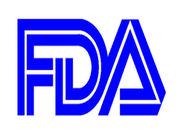Injectable drug designed to rupture and kill cancer cells
WEDNESDAY, Oct. 28, 2015 (HealthDay News) — Imlygic (talimogene laherparepvec) has been approved by the U.S. Food and Drug Administration to treat melanoma lesions of the skin and lymph nodes.
Imlygic, made from a genetically modified herpes virus, is approved to treat melanoma that cannot be completely surgically removed. It’s injected directly into melanoma lesions, where it replicates inside cancer cells and causes the cells to rupture and die, the agency said. The drug is to be administered every two to three weeks for about six months, unless other treatment is needed or there are no additional lesions to treat, the FDA said.
Imlygic was evaluated in clinical studies involving 436 patients with metastatic melanoma that couldn’t be removed by surgery. Some 16 percent of participants given the drug had lesions on the skin and lymph nodes decrease in size, compared to about 2 percent of participants given a placebo. However, the drug hasn’t been proven to extend survival or to have an effect on melanoma that has advanced to inner organs such as the brain, bone, liver, or lungs, the agency said.
Imlygic’s most common side effects include fatigue, chills, fever, nausea, flu-like symptoms, and injection-site pain. Since the product is derived from a modified live oncolytic herpes virus it is possible to acquire herpes virus infection from the drug and therefore shouldn’t be given to people who are pregnant or have weakened immune systems.
The drug is produced by a subsidiary of Thousand Oaks, Calif.-based Amgen.
Health News Copyright © 2015 HealthDay. All rights reserved.








